Caring for the land

Winter 2025 California Bountiful magazine
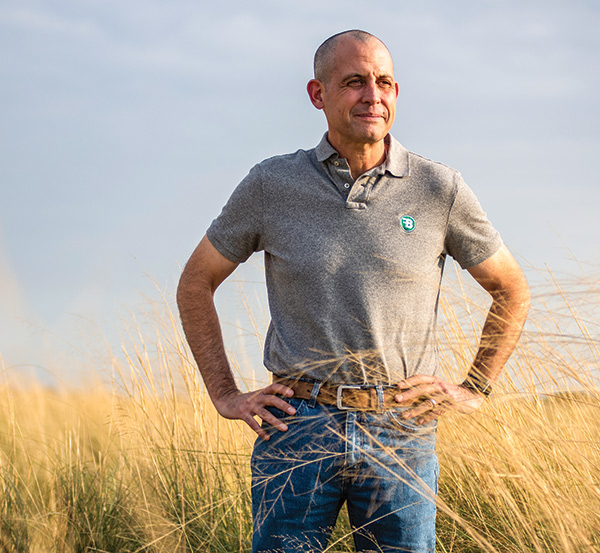
Award finalists showcase personalized approaches to conservation
Story by Caitlin Fillmore
Photos by Paolo Vescia
Meaningful conservation relies on consistent, measured actions sustained over time. This year’s finalists for the Leopold Conservation Award exemplify the rewards of long-term conservation in their daily practices.
The award in California is made possible by Sand County Foundation, American Farmland Trust, California Farm Bureau, Sustainable Conservation, The Harvey L. & Maud C. Sorensen Foundation, Farm Credit, USDA Natural Resources Conservation Service, McDonald’s and alumni recipients of the California Leopold Conservation Award.
Bowles Farming Co.
Merced County
For 166 years, the Bowles and Lawrence families have nurtured the land and ecosystem of Bowles Farming Co. in Los Banos. The thoughtful management practices established by farm founder Henry Miller in 1858 continue today as the company enters its seventh generation of operations—a milestone with deep significance.
“Caring for the same land for over a century ties us to it in ways that don’t happen overnight,” says CEO Cannon Michael. “Most family businesses don’t survive past three generations, and we don’t assume that future generations are guaranteed. We are fortunate to have a family that understands the ups and downs of agriculture and the importance of investing annually in improving all aspects of the business.”
Bowles Farming Co.’s sustainability efforts earned it the 2024 Leopold Conservation Award, which honors farmers and ranchers who practice outstanding environmental stewardship. Named for renowned conservationist Aldo Leopold, the award recognizes those who consistently work to enhance the land under their care. This year, Hat Creek Grown in Shasta County, owned by Henry and Pam Giacomini, and Stemple Creek Ranch in Marin County, owned by Loren and Lisa Poncia, were finalists.
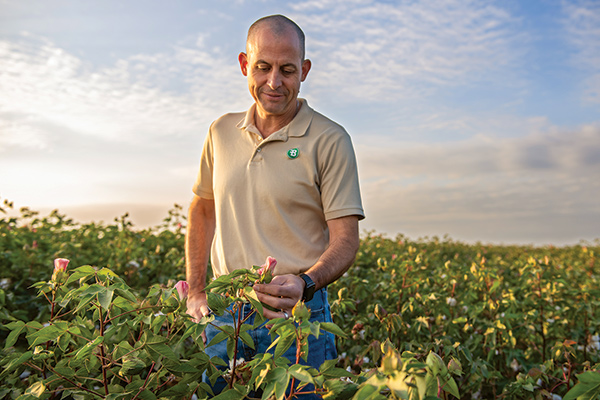
A commitment to conservation
The present-day Bowles Farming Co. was formed in 1965 when the Bowles and Lawrence families united to preserve the original farm’s footprint.
The company’s wide reach includes 640 acres of natural wetlands, providing an ideal forage habitat for native pollinators and migratory birds. Bowles Farming Co. manages these areas in partnership with the California Department of Fish and Wildlife, maintaining a high standard of conservation performance. Bowles also works to restore key river ecosystems, maintain its Bee Friendly Farming status and meet rigorous certification standards for the farm’s crops, including tomatoes, corn, herbs, garlic and cotton.
The key to managing such a sprawling yet responsible enterprise is “thinking systemically,” says Executive Vice President Derek Azevedo. He explains that decisions, such as switching to drip irrigation, are analyzed from all angles, considering factors ranging from water use to energy consumption. “We went solar to address this issue and reduce our long-run energy bills,” he says. “We generate 2 million kilowatt-hours annually, which is enough zero-carbon electricity for an electric vehicle to travel 6.7 million miles.”
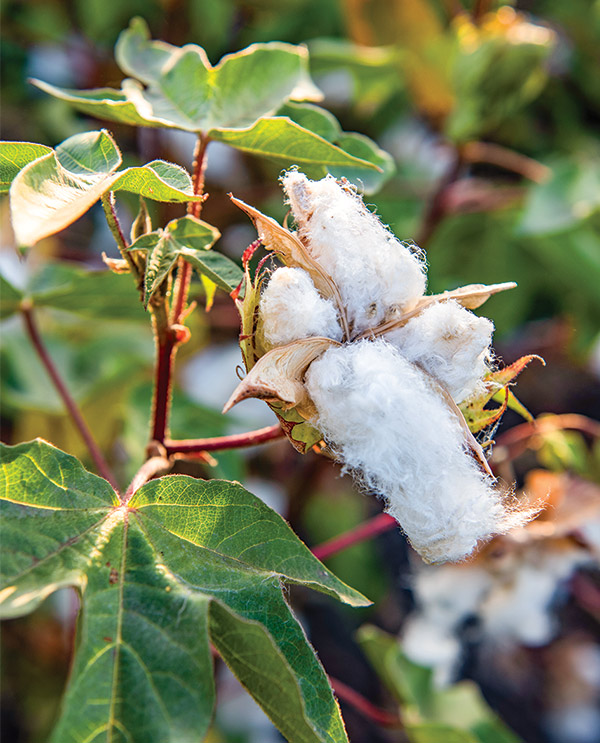
Scaling up sustainably
This systemic approach has positioned Bowles Farming Co. as a leader in regenerative practices. Nearly 10% of its farmland is certified organic, Azevedo says, compared to 2% of farmland across the U.S. As an early adopter of composting, Bowles established a full-scale composting center on the farm that converts 1,800 truckloads of green waste per year from nearby communities into a high-quality soil amendment.
Recognizing the limited supply of native plants crucial for habitat improvement in agricultural settings, the company launched Great Valley Seed to address this gap. “We aim to help solve that supply problem across the whole of the San Joaquin Valley by using our farming expertise to scale up the production of cost-effective, farmer-friendly, locally sourced native plants,” Azevedo says.
Great Valley Seed focuses on the unique needs of central and southern San Joaquin Valley, preserving and propagating local ecotypes of native plants essential for restoration. The company has collected more than 70 ecotypes of California native plant species and is currently cultivating a variety of grasses and flowering plants on more than 200 acres of land previously used for row crops. To produce the seeds, Bowles Farming Co. must experiment with growing plant species without a documented history of commercial propagation, Michael says.
As a startup within this century-plus farm enterprise, Great Valley Seed has experienced an uphill climb and has currently paused its independent operations, he adds. “There are many native species that are extremely valuable for the pollinator species that are essential for productive agriculture,” Michael says, “but the sales cycles are much different than standard commercial crops.”
Despite these obstacles, the company remains committed to this innovative conservation concept. Under the umbrella of Bowles Farming Co., the effort to grow and produce native seeds continues with partners, Michael says.
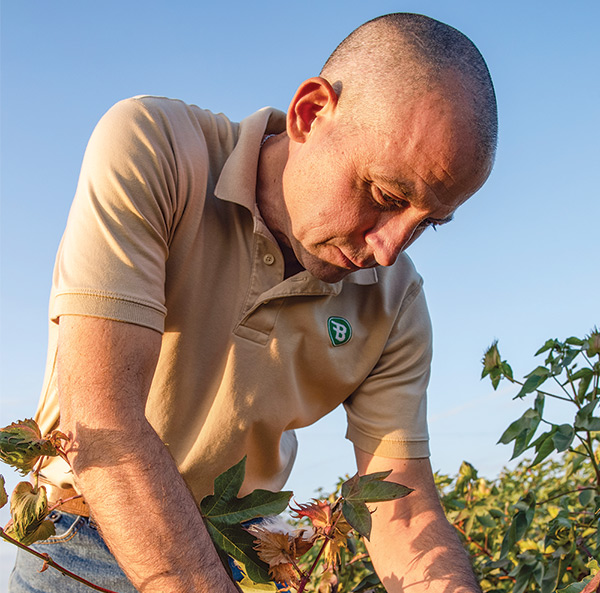
Investment in plants and people
Bowles Farming Co. includes its workforce in its sustainability initiatives, providing immigration support and funding scholarship programs. Azevedo recalls that before becoming CEO, Michael worked alongside field teams, observing how managers sought and respected the insights of their farm employees.
As the Leopold Conservation Award-winning company reflects on its legacy, Azevedo considers the Seventh Generation Principle. This indigenous concept encourages decision-makers to think about the impact on future generations.
“We believe a farm is more than a place to grow food and fiber. Yes, we grow stuff to eat and wear, but we also use our influence to grow people, habitat, wildlife and soil, doing our best to educate and inform consumers along the way,” Azevedo says. “As the farm approaches its seventh generation, this principle is in full bloom.”
Stemple Creek Ranch
Marin County
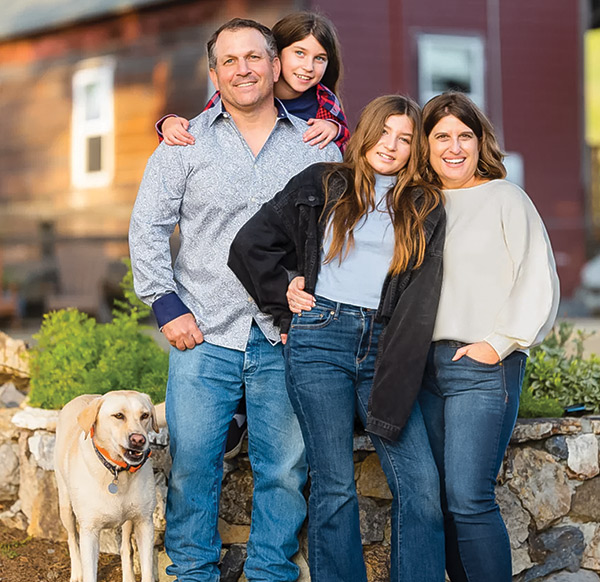
Stemple Creek Ranch, a family-owned grass-fed cattle operation, embodies the challenging decisions inherent in long-term conservation. Owned by Loren and Lisa Poncia, the ranch is certified organic for both its animals and pastures and was one of the first demonstration farms for the Marin Carbon Project. They utilize compost and worm tea to enrich soil health and plant perennial grasses with deep taproots that sequester carbon. The Poncias say they make farming decisions based on what is best for the environment, the pastures, the animals and their family.
Hat Creek Grown
Shasta County
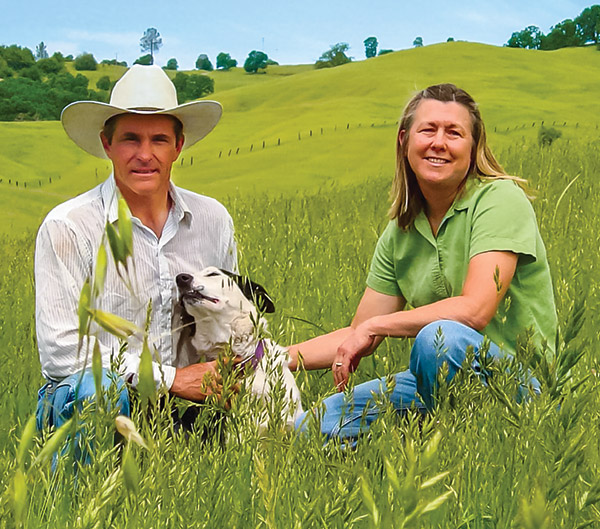
Henry and Pam Giacomini strive to maintain their 35-year-old operation with minimal impact on the land. And it’s a lot of land: As owners of Hat Creek Grown, the couple manages more than 60,000 acres of leased, private and federal lands for their cow-calf operation (numbering more than 1,000 head), custom-grazing pasture cattle and invasive weed-fighting goat herd. They collaborate frequently with organizations including the University of California and National Cattlemen’s Beef Association to elevate conservation efforts statewide, contributing to research on water quality, stream temperature and range monitoring since the 1990s.
Editor’s note: We were saddened to learn that Pam Giacomini passed away Dec. 29, 2024, shortly after this story was written. To read about her life and legacy, view a remembrance in the Ag Alert newspaper.

